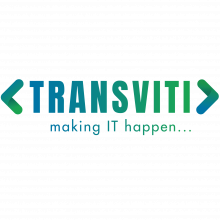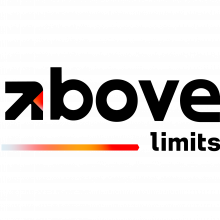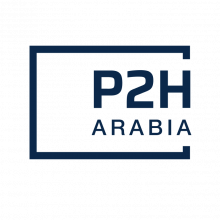Explore Top Angular Development Companies in Saudi Arabia
Sharp Innovations Solutions(LLC) company is experienced in web design and development and has planned, created and launched successful websites.
Services:
JustMondo started with a passion for creativity and a commitment to excellence, dedication to helping businesses thrive in the evolving digital world.

Tessafold LLC Verified Company
Jeddah, Saudi Arabia Head office in: United States
🚀 Accelerating Tech Venture Building 🚀 | We fuel Corporates & Startups to success with skin in the game.
Dunesberry has been transforming businesses since 2010. We’ve delivered creative solutions for companies to elevate their brand and achieve success.
Out2Sol is a Best IT and Software Company in Saudi Arabia. Offering IT outsourcing, Web & App Development, VR solutions & Microsoft solutions services
ZA Technologies is a Riyadh, technology company that offers Modern Solutions for Digital Excellence, aligning with the goals of Saudi Vision 2030.
Codhaus - Crafting Digital Experiences, Driving Real Results
Web Design & Development | Mobile App Development | eCommerce Development | Digital Marketing | Photography & Videography | Branding
Services:
Rev9Solutions: Your premier software development partner. Services include web and app development, AI, DevOps, product management,
Services:

iPrism Technologies Verified Company
Jeddah, Saudi Arabia Head office in: India
iPrism Technologies is a one of the leading web and mobile apps development company in India.
Transviti is a leading next-generation software development & automation company, a technology subsidiary of ECOVIS AL SABTI and FAMCO Associates.
Connect with the leading top 10 IT service, consulting, system integration, construction, and management firms in Saudi Arabia | Riyadh | Jeddah
Dot Connect is a full-service design and programming company implementing new online technologies. We can help you attain the best possible presence o...
Great ideas engage people, engaged people transform businesses! Through collaboration and communication we help transform risks into results, confusio...
Services:

Riyadh, Saudi Arabia Head office in: United Arab Emirates
Neusol LLC is a technology service provider, established in 2010, and growing with a fast pace. Neusol delivers unmatched business value to customers...

Evince Development Verified Company
Jeddah, Saudi Arabia Head office in: United States
Delivering Growth by Digital Transformation
A leader in InformationTechnology Consulting Services Skillmine Technology provide services ranging from cloud &cybersecurity to digitaltransformation
P2H Arabia is a Saudi/non-Saudi company providing innovative and efficient solutions to the private and public sector.

Riyadh, Saudi Arabia Head office in: India
An experienced software development company in Kerala, India. With our parent company, Orbit Beam, we developed about 1000 projects for our GCC client...
Services:
We build exceptional brands and digital products. We create amazing User Experiences that help our clients stand out of the crowd!
Services:
Filter Angular Development Companies in Saudi Arabia by Cities
Find the right tech company near you or from a specific city. Some of the best companies might be located in smaller cities.
Find more Angular Development companies around the world
TechBehemoths is the world's most advanced and user-friendly platform to match IT Companies with real clients without hustle.
The IT Industry In Saudi Arabia
A modern sector for information and communication technologies is integral to today’s advanced industrial activities.
Saudi Vision 2030 aims to transform Saudi Arabia into a globally competitive ICT hub, with modern technologies and an empowered information society.
The ambition envisages many investment themes, including the development of digital content and media, the expansion of the telecommunication system, the digitization of the country, and the creation of new high-tech and smart industries.
The government is working alongside the private sector to modernize the ICT infrastructure, enhancing the regulatory framework to enable new innovative investments, and building the most suitable ecosystem to support entrepreneurs and digital talents.
Why You Should Work With Saudi Arabian IT Companies
IT is used by the government sector to construct smart cities. It is also used in citizen engagement, which includes digital signs, iBeacons, mobile payments, mobile applications, and smart waste management; for public safety and emergency response, which includes connected officers, intelligent operation centers, and acoustic sensors; for social services like connected caseworkers, food bank inventory, and one-touch emergency response; for environmental monitoring like the study of weather/atmosphere; and to permit and license issuing activities.
Taking into account that local Saudi IT companies can handle and have expertise in these fields, it is easy to deduce that they can bring something new and innovative to the global market.
What to Be Aware of When Working With Saudi Arabian IT Companies
A low level of utilization across some components of the economy was reflected in the “Digital Middle East” report issued in October by global management consultancy McKinsey, which highlighted that just 15% of small and medium-sized enterprises in Saudi Arabia have an online presence.
According to McKinsey, Saudi Arabia’s digital economy contributes 3.8% to GDP, below the regional level of 4.1% and less than half the 8% seen in the US. The report also noted that Saudi Arabia, along with other countries in the Middle East, had only captured a fraction of its digital potential.
How Reliable Are Saudi Arabia’s IT Companies
IT companies located in Saudi Arabia are considered to be reliable, especially for regional players. The main contributor to the level of trust is the country’s reputation and the role it plays in the region. On the other hand, on a global level, there are not so many Saudi IT companies and web agencies that are popular, which is a good reason for deeper research in the search for an appropriate IT company for each project.
How Does the Saudi IT Industry Relate to the Neighboring Countries?
Of the nine countries ranked in McKinsey’s Digitisation Index for the Middle East, Saudi Arabia was fourth, behind the UAE, Qatar, and Bahrain, with solid state-based demand offset by weak private sector uptake and only moderate ICT supply and innovation capacity.
What is Angular and what are its benefits for your projects?
Angular (formerly AngularJS) is a popular open-source web application framework maintained by Google and a community of developers. It's used for building dynamic, single-page web applications (SPAs) and web-based applications in general. Angular provides a structured and organized way to create complex web applications by extending HTML with additional features and enabling the development of interactive, responsive, and maintainable front-end web interfaces. Here are some key aspects and concepts of Angular:
-
Component-Based Architecture
-
Templates
-
Directives
-
Dependency Injection
-
Services
-
Routing
-
Observable and RxJS
-
Modules
-
Testing
-
Cross-Platform
Angular's structured approach, strong tooling, and vibrant ecosystem of libraries and extensions make it a powerful framework for building modern web applications. It is particularly well-suited for large and complex projects where maintainability and scalability are crucial.
Companies may choose Angular over other front-end frameworks for their projects for a variety of reasons, depending on their specific needs and priorities.
-
Google Backing: Angular is developed and maintained by Google. This association often gives companies confidence in its long-term support, stability, and continuous improvement. Google's involvement is seen as a sign of reliability and commitment to the framework.
-
Mature and Established: Angular has been around for a while and has a strong track record of being used successfully in large-scale enterprise projects. It has a well-defined architecture and best practices, which can be beneficial for maintaining and scaling applications over time.
-
TypeScript Support: Angular is built with TypeScript, a statically-typed superset of JavaScript. TypeScript provides better tooling, code maintainability, and catches errors at compile time, which can reduce bugs and enhance code quality, making it attractive to companies that prioritize robust code.
-
Full-Featured Framework: Angular provides a comprehensive set of tools, libraries, and features out of the box, including routing, form handling, HTTP client, and more. This can save development time and effort compared to integrating multiple third-party libraries in other frameworks.
-
Two-Way Data Binding: Angular offers powerful two-way data binding, which allows for automatic synchronization between the data model and the view. This feature can make it easier to develop interactive and responsive user interfaces.
-
Large and Active Community: Angular has a large and active community of developers and a wealth of resources, including documentation, tutorials, and third-party libraries. This can be beneficial for finding solutions to common problems and getting support when needed.
-
Enterprise-Ready: Angular provides features like dependency injection, modularity through modules, and a strong emphasis on testability. These characteristics are well-suited for building robust and maintainable enterprise-level applications.
-
Strict Coding Standards: Angular enforces a set of coding standards and best practices, which can lead to more consistent and readable code. This can be important for companies with multiple developers working on the same codebase.
-
Cross-Platform Development: Angular can be used for building both web and mobile applications. Companies looking to develop applications for multiple platforms may choose Angular for its ability to share code between web and mobile apps using technologies like NativeScript or Ionic.
-
Integration with Backend Technologies: Angular can easily integrate with various backend technologies and APIs. This makes it suitable for projects where the front end needs to communicate with different types of server-side applications.
-
Security Features: Angular provides built-in security mechanisms to help prevent common web vulnerabilities like Cross-Site Scripting (XSS) and Cross-Site Request Forgery (CSRF). This can be crucial for projects with high security requirements.
-
Ecosystem and Tooling: Angular has a rich ecosystem of tools, extensions, and IDE support, including Angular CLI for project setup and management. This can streamline development workflows and improve productivity.
Ultimately, the choice of Angular or any other framework depends on the specific project requirements, the development team's expertise, and the company's long-term goals. Companies evaluate various factors to determine which framework aligns best with their needs, resources, and priorities.


















